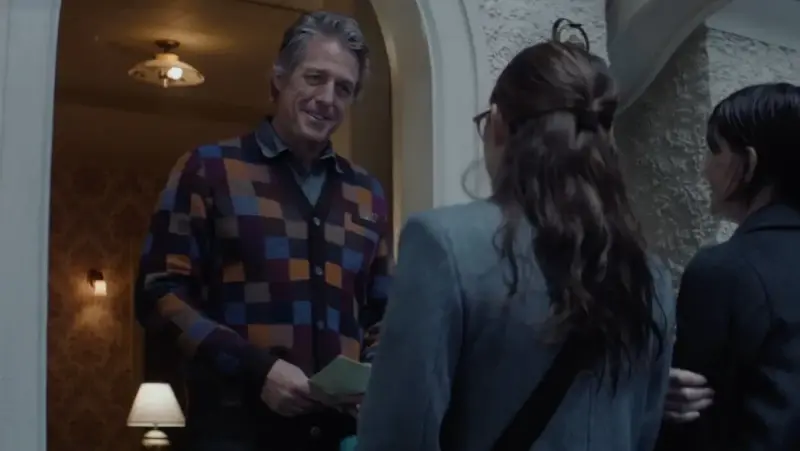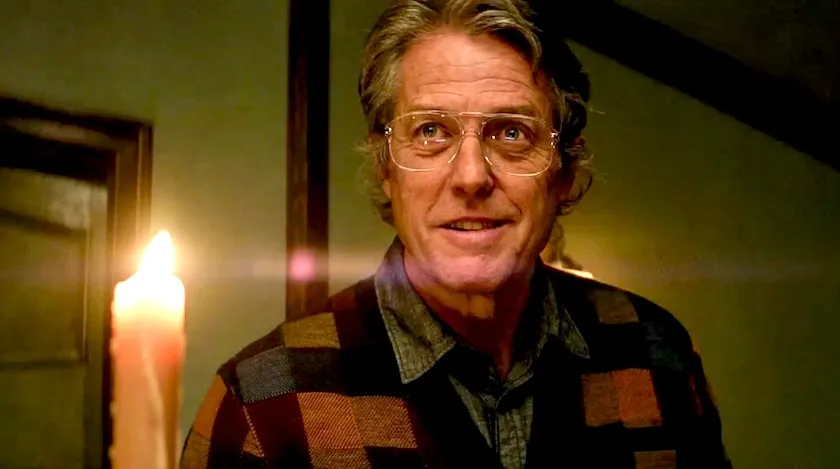Heretic (2024) is most definitely not your typical horror flick. Directed by the genre twisting duo- Scott Beck and Bryan Woods, it leans less into jump scare and more into that unsettling, reflective space where you’re left sitting in silence, wondering what you really believe. If you walked out of the theatre with more confusion than closure you’re in good company.
The Heretic ending doesn’t come crashing in, it creeps and lingers, packing a quiet punch that’s more philosophical than gory. And depending on how deep you want to go, it either opens the door to something meaningful or leaves you circling in uncertainty. So let’s just start unpacking the layers, one disturbing moment at a time!
Knock Knock, Who’s There? Existential Dread

Before we decode the ending of Heretic, let’s start form the beginning. We begin with two Mormon missionaries, Elder Miller (Chloe East) and Elder Young (Sophie Thatcher), doing their usual door-to-door routine of meeting people and preaching. They knock on the door of Mr. Reed (played by a deeply unsettling Hugh Grant).
Mr. Reed comes across as a sweet courteous and slightly offbeat older man who enjoys cookies and conversation. But there’s more going on beneath the surface, he’s not really inviting them in for a friendly chat!
Instead, he pulls them into a twisted psychological trap disguised as a test of faith. Reed is a self-proclaimed heretic, not just someone who questions belief, but someone who wants to tear it apart, piece by piece. He’s not looking for redemption; he wants to press on their faith, poke until it shatters.
Faith Under Fire (And a Whole Lot of Mind Games)
The “games” Reed plays aren’t physical torture, I mean not exactly! They’re emotional landmines. He basically pushes the missionaries to confront their fears, doubts and every little crack in their convictions. Elder Young buckles under the weight of it all, leaving Elder Miller to carry the story and the trauma forward!
Reed isn’t just the villain here, he’s more of a philosopher with a mean streak! He believes faith is a fairytale that people tell themselves to sleep at night. And the only way to prove the strength of faith is merely stripping away every layer of comfort, community and security and then see what’s left of it!
Spoiler alert: Not much!
Also, read The Backstroke Ending Explained: When Skinny Dips Turn Sinister
The Final Test: Choose Death or Choose Yourself?

By the end, only Elder Miller remains, who is bruised, bleeding but still clinging to her principles. Reed presents her with one final, bone-chilling choice – Die for your faith or live and admit that it was never real to begin with!
And here’s where things get juicy! Miller doesn’t fold! But she doesn’t go down in flames as a martyr either. Instead, she fights back! With a burst of sheer survival instinct, she lashes out, wounds Reed and bolts further into the house!
But here, the nightmare hasn’t really ended. It’s only changed shape!
The Heretic Ending: Surprise! There’s a Garden!
Miller stumbles into a hidden garden, a quiet, lush patch of paradise tucked away behind all the psychological chaos. It’s peaceful, it’s surreal and it’s totally jarring after everything we’ve seen.
Reed drags himself into the garden too, bleeding and half-dead. He looks at Miller not with anger, but with something eerily close to admiration. His final words? “You finally chose!”
And then he dies. Just like that. No dramatic screams, no flames. Just a broken man in a beautiful place. And Miller? She’s left alone, caught in a space where survival feels just as disturbing as what she escaped!
Also, read American Psycho Ending Explained: Sanity, Sociopathy or Just Good Skin
Final Thoughts: Fragile? Maybe! Fake? Not Always.
The Heretic ending doesn’t give us closure, it gives us a mirror. What you see in it depends on what you believe. Did Miller fail? Did she evolve? Did she become something entirely new?
Faith, like fear, is messy when it’s tested. Reed may have set the game in motion, but Miller’s final step was hers alone.
In the ending of Heretic, we don’t get any screams. We get something quieter. Something more unsettling : “You finally chose.”
Frequently Asked Questions (FAQs)
1. Is Elder Miller still religious at the end?
That’s left ambiguous. She doesn’t die for her faith, but she doesn’t renounce it either. Her survival suggests a shift, perhaps not the end of belief, but the beginning of a more personal version of it.
2. What does the garden represent?
The garden echoes Eden but carries a darker weight. It’s beautiful, yes, but entered through blood and pain. It’s not a promise fulfilled; it’s the cost of survival made visible.
3. Did Mr. Reed win?
In one sense, yes Miller didn’t martyr herself. But she also didn’t break completely. She lived. Whether that counts as a win or not depends on who’s keeping score.